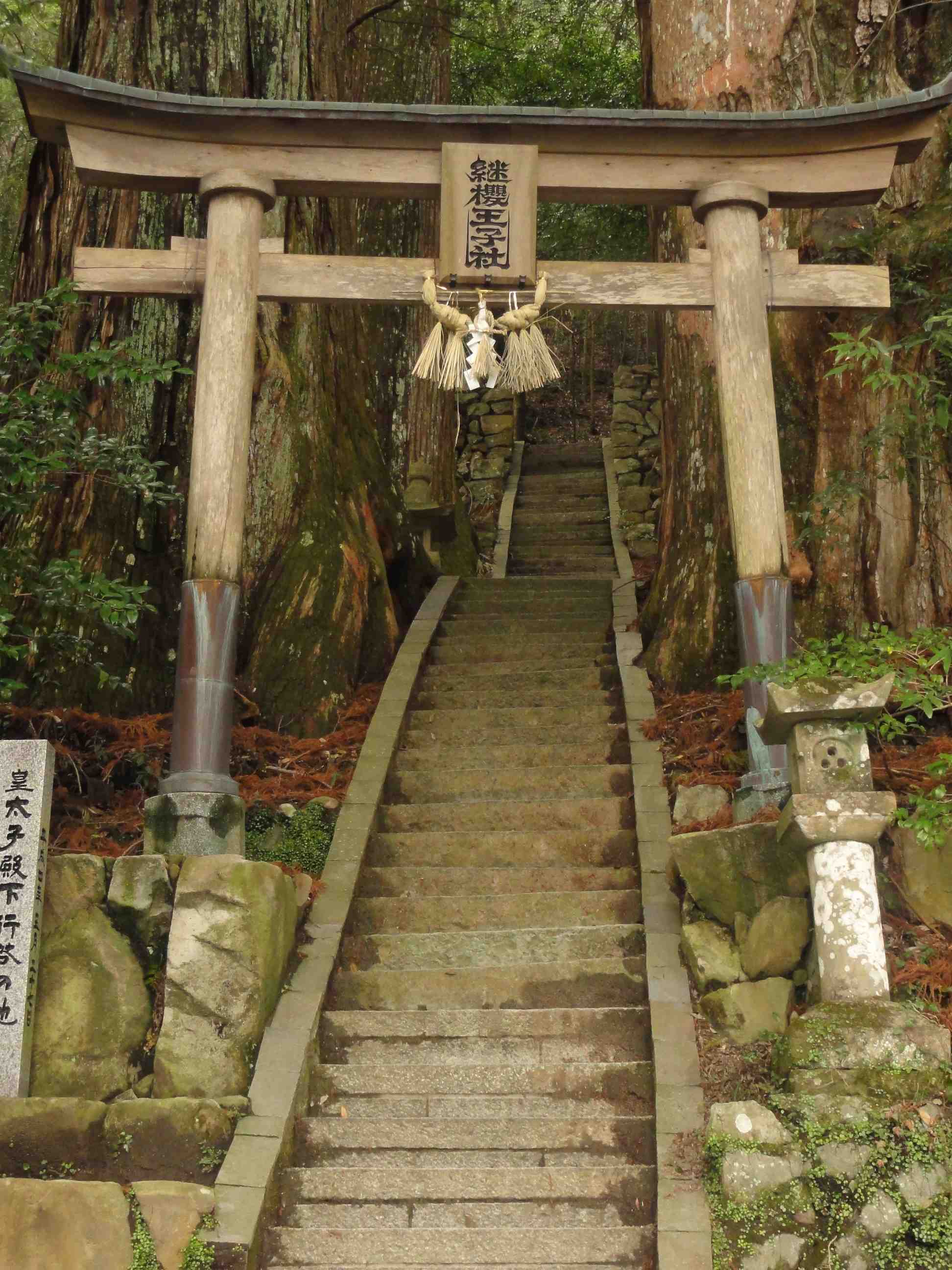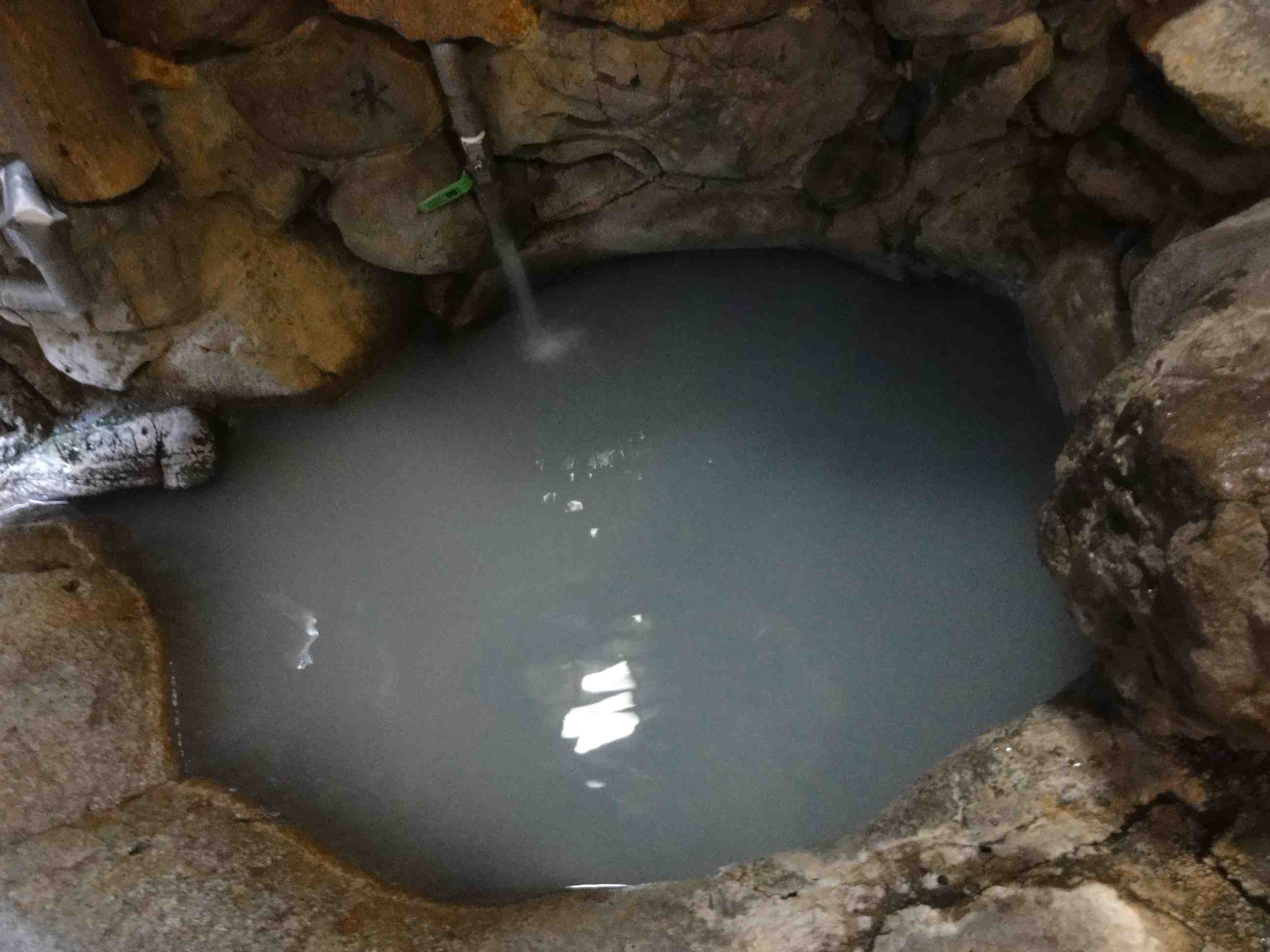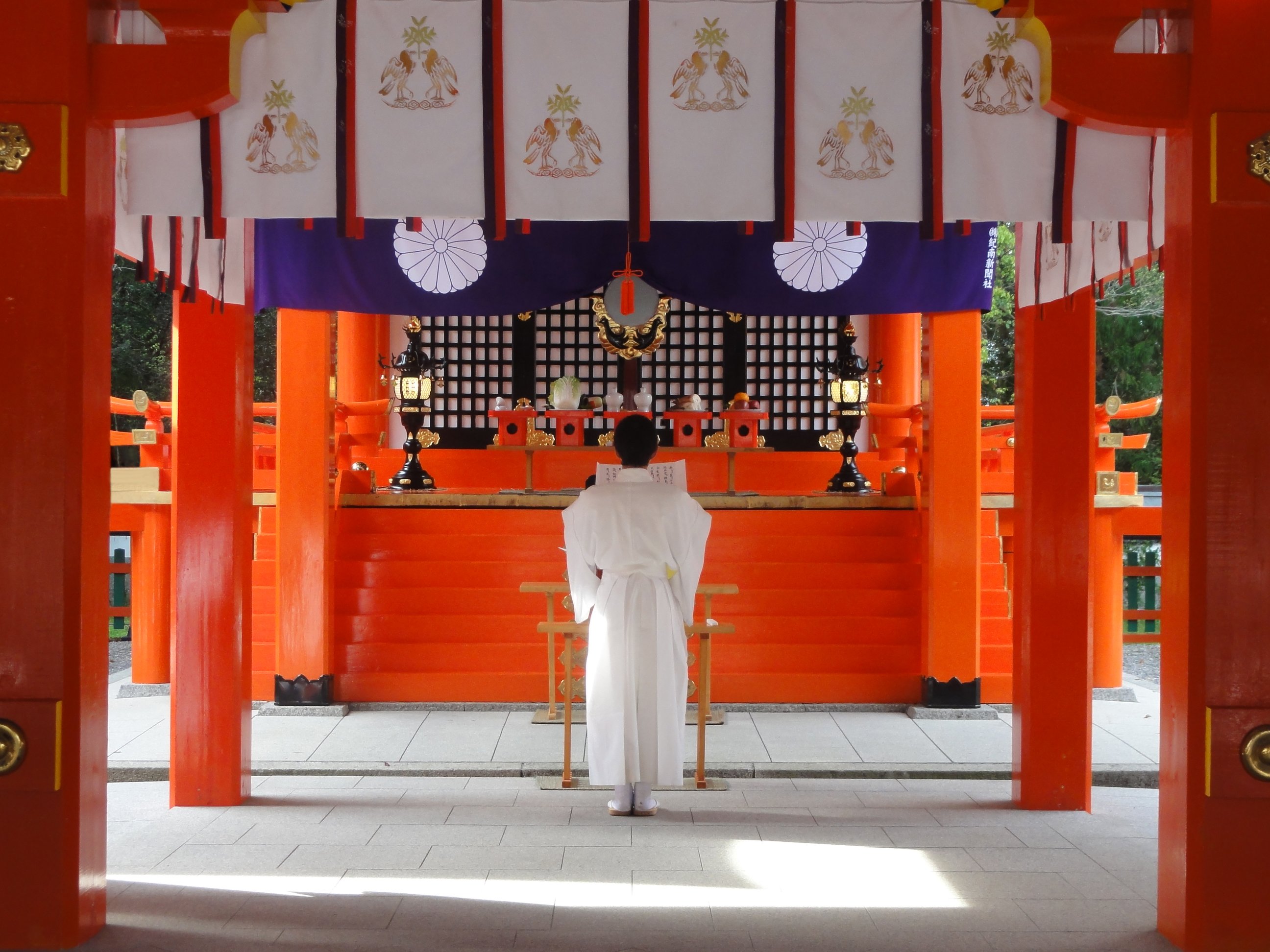Adam Waxman is an award winning travel journalist focusing on…
Legend has it that the Kumano region in the Kii Mountain Range of Wakayama is a place where deities descended and now reside within trees, mountains, rocks and rivers. Following in the footsteps of nature-worshipers, and the ancient pilgrimage route of the Imperial family, we step back in time and visit the “Land of the Gods” that has been the focus of spiritual pilgrimage for more than 1,000 years. We begin at a creek.
In the middle of the flowing water is a small wooden cabin around a piping hot natural mineral bath, the Yunomine Onsen. We are allotted 30 minutes immersion before our hike, but it takes me about 20 minutes of pouring and raking cold water to bring the scorching temperature down. Soaking in this cloudy, sulphuric spring feels disconcerting, but for 1,800 years it has been a medicinal source of health, well-being and purification rituals.

Hiking into the forest of sweet smelling cedar, the enormity of the vibrant trees, some large enough in which to build a house, give me a spooky feeling that there is indeed some other energy here.
It requires hundreds of steps to reach the temples and shrines, but my energy level has never been higher. After just one day of walking through these woods and climbing up these steps, I feel a rejuvenation that I have not felt in years. Lunch is a bamboo leaf box of simple, indigenous ingredients like shitake mushrooms, yams, burdock root, bamboo, rice, fried tofu and trout that can mostly be found along the pilgrimage route, and provides healthy fuel during our walk above the yamanami “mountain waves.”
 While resting by the river at Kawayu Onsen, we are handed shovels. As we dig a pit, hot water bubbles to the surface. The confluence of flowing cold water and rising hot thermal water is the height of organic luxury. The hot sulphuric spring water also extracts impurities from food, and brings out colours, sweeter flavours and a softer texture when used for cooking. We drink sweet shochu from a bamboo shoot, made with this hot spring water and medicinal herbs. Local cattle also drink this water, so even the beef nabe pot of roots and vegetables is nourished by these magical waters.
While resting by the river at Kawayu Onsen, we are handed shovels. As we dig a pit, hot water bubbles to the surface. The confluence of flowing cold water and rising hot thermal water is the height of organic luxury. The hot sulphuric spring water also extracts impurities from food, and brings out colours, sweeter flavours and a softer texture when used for cooking. We drink sweet shochu from a bamboo shoot, made with this hot spring water and medicinal herbs. Local cattle also drink this water, so even the beef nabe pot of roots and vegetables is nourished by these magical waters.
Registered as a UNESCO World Cultural Heritage Site, Kumano Kodo is more than a nice walk in the woods; it is a gateway into 3,600 mountains of shinboku “divine trees.” According to the Wakayama Health Centre and the Japanese Ministry of Health, there are quantifiable human effects from “forest bathing” in this region of highly concentrated phytoncides—active antimicrobial compounds that prevent rotting in plants and are used in aromatherapy and holistic medicine. Breathing in this negatively charged air results in positive health benefits, from a relaxed heart rate and increased mental acuity to decreased levels of the stress-produced hormone cortisol, and increased immunoglobulin-A antibodies that enhance human immune functions.

Prior to our visit to Kumano, we met with a monk in Kyoto who asked us if we had ever climbed Mt. Fuji. He told us that while there are many ways to climb, each path leads to the same peak, but we must be self-reflective, appreciate subtlety and purity, and remember: “good posture leads to good breathing, which leads to good mind, spirit and energy.” Reflecting on our spiritual journey, its simplicity and extraordinary nature, we recall the monk’s words to live more simply and organically, and his request to us on what to bring home from Japan: “When you return home, please remember to keep breathing in what you have learned here.”
Read more:
Adam Waxman is an award winning travel journalist focusing on food, wine and well being. As well as an actor in film, television and formerly, the Stratford Festival, he is the Publisher of DINE and Destinations magazine.




